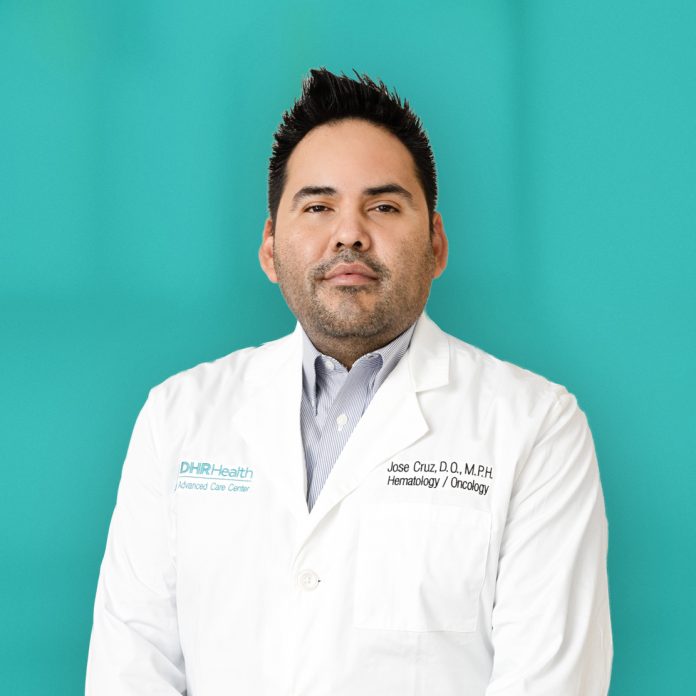
By Dr. Jose Cruz, DHR Health Oncology Institute
Esophageal cancer is a rare, but deadly. cancer. It makes up about 1 percent of all cancers, with 15,000 patients dying from it each year in the United States. There is no screening to prevent esophageal cancer. Several risk factors increase a person’s chance of developing esophageal cancer. Knowing the risks factors you can change might help you prevent esophageal cancer.
Risk factors you can change:
- Smoking – People who have smoked for a long period are more likely to develop esophageal cancer than those who have never smoked. Smoking damages the cell lining of the esophagus, with half of esophageal cancer cases involving smoking. Smoking is linked to many other cancers, too.
- Alcohol Use – Esophageal cancer has been linked to moderate-to-heavy alcohol use. It is best not to drink alcohol; however, if you are going to drink, the recommendation for men is to drink fewer than 2 drinks a day, 1 drink a day for women.
3. Gastroesophageal Reflux Disease (GERD) – Stomach acid that refluxes into the esophagus causes long-term damage. Acid reflux can be controlled with medication or surgery and contributes to half of esophageal cancers.
4. Barrett’s Esophagus – This is a precancerous condition caused by uncontrolled reflux. Long-standing damage to the gastroesophageal junction, the end where the esophagus joins the stomach, leads to Barret’s esophagus. Your gastroenterologist will offer local therapies or monitor it frequently to prevent progression to esophageal cancer.
Risk factors you cannot change:
- Gender/Age- Males are 3 to 4 times more likely than women to develop esophageal cancer. The risk increases if between the ages of 45 and 70.
2. Medical History- Conditions associated with the movement and relaxation of the esophagus also increase the risk for cancer. Achalasia, a condition where the lower part of the esophagus fails to open, and esophageal webs, fibrous tissue that forms around the esophagus making swallowing difficult, increase the risk of cancer.
Symptoms of esophageal cancer include difficulty or pain when swallowing, unexplained weight loss, coughing/hoarseness, or pain behind the throat. Do not ignore your symptoms, especially if they fail to improve within a few weeks.
Your primary care physician will refer you to a gastroenterologist, who will perform several studies, including an esophagus-gastro-duodenoscopy (EGD) or an upper endoscopy to evaluate the esophagus, stomach, and early portion of the small intestine. A gastroenterologist might obtain a biopsy (a piece of tissue) of abnormal areas that will be studied under the microscope. If diagnosed with esophageal cancer, your gastroenterologist will refer you to a surgeon and a medical oncologist to develop a personalized treatment plan based on your stage and medical history.
At DHR Health, our gastroenterologists, surgeons, and medical oncologists are committed to providing you with high-quality care. If diagnosed with esophageal cancer, our team of nurse navigators will work with you to coordinate your evaluations, imaging studies, physicians, and treatment visits.
Our dedicated team will guide you along the way. If you or a loved one would like more information about esophageal cancer and the treatment options available, please call the DHR Health Oncology Institute at (956) 362-2250.





